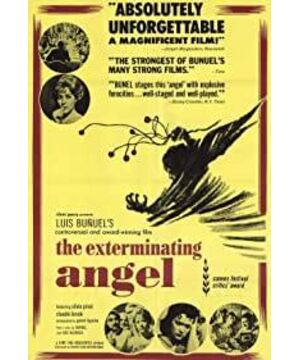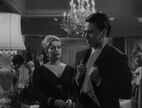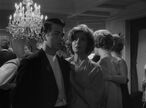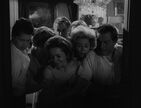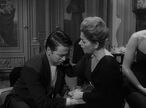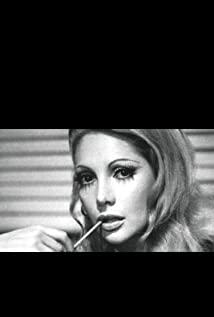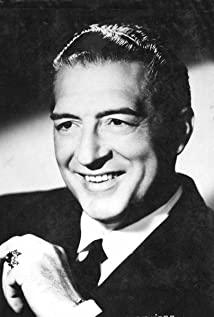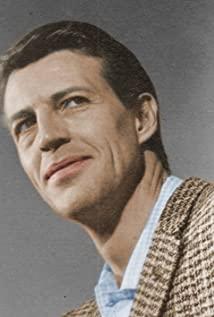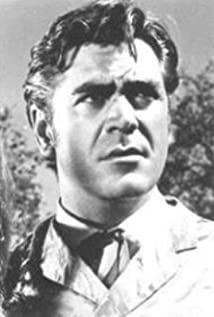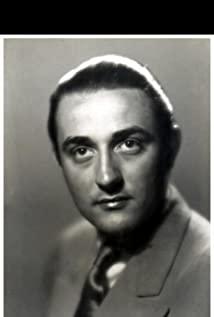The Chicago Sun-Times, May 11, 1997
The guests of the dinner filed in. They walked up the steps into the wide porch... Then came another wave of people - the same guests, but this time from a higher stand. Audiences soon discovered the beauty of the joke: guests came one after the other and couldn't leave.
Luis Buñuel's "Angel of Destruction" (1962) is a thriller comedy that reveals the brutal nature and elusive secrets of us "savages" with a poignant look at human nature. He proposed bringing a group of successful people to a dinner party and imprisoning them, and in this experiment of overpopulation, they would over time sue each other like traitors.
Buñuel opens with a subtle but cautionary prophecy: As the dinner begins, the cook and a group of servants suddenly flee with their clothes on. The hostess was outraged; she had arranged a show of two sheep and one bear after the feast, and now it had to be canceled - this typical Buñuel-esque surreal brushstroke, so inexplicable and self-evident happened.
The dinner was successfully held. The guests slandered each other and looked at each other with greed, lust and hatred. After the dinner, they came to the living room, and the audience saw a woman's purse full of chicken feathers and feet. The doctor predicted that a woman would go bald in a week... But from a macro perspective, this banquet seems to have no clue: the food is exhausted, the piano is playing, everyone is elegantly dressed and behaved Appropriate.
Then, after some subtle changes, a problem started to become apparent: No one could get out. The guests were gearing up and wandering the corridors. Although there was no obstacle, no one escaped. They fail to recognize the fact that when they lazily indulge on the sofa rug, they have made a wordless and pathetic compromise with the status quo.
It's a genius opening in such a sinister film. Despite the low tone, the ominous omens piled up as the guests settled in for the night—and Buñuel trapped the audience under his spell.
Buñuel is one of the most avant-garde and unique directors - a Spaniard who threw himself into the surrealist camp in Paris; he dubbed Hollywood films in Spanish all year long; most of his best work was between 60 and 77. completed between the ages. His first film, "An Andalusian Dog" (1928), which he co-directed with Salvador Dalí, caused an uproar at the time (he wrote in his autobiography that he filled his pockets with stones, and when an audience attacked him when he does, he can use it to counterattack). The movie gave birth to a classic scene in film history: as a cloud swept across the surface of the moon, a razor slashed across the eye.
This film was followed by the deeply depressing and repulsive Golden Age (1930) and the gritty documentary A Land Without Grain (1933) in one of Spain's poorest regions. Buñuel never made a film from then until his exile in Mexico in the late 1940s. In Mexico, he shoots both commercial and authoritative works, almost all of which show his personal complex: as a public enemy of Franco's Spain, he is an anti-fascist, anti-ecclesiastical and anti-bourgeois By. He also had a slight foot fetish (Pauline Kael once said that it was a wonderful afternoon when little Louis was having a good time on the floor of his mother's closet, a story he's been sharing with us ever since).
He firmly believes that most people are hypocrites who pretend to be holy and seek pleasure. He also has nihilistic tendencies: in one film, a Christ character is touched by a tired dog tied to a carriage before him, and he pays to buy and let go of the dog. When he left, he didn't notice the dog in the background again, also tied to the carriage, exhausted.
When Buñuel was filming "Destroy the Angels" in 1962, his career was at a plateau. In 1960, he made the internationally acclaimed "Velitiana" ( 1961) , which won many film festival awards and heralded his return after years of exile. But the film's finishing touch: a disgusting reenactment of the "Last Supper" that offends Spanish authorities' censorship, so he returns to Mexico for his satire, "Destroy the Angels."
Apparently, the dinner guests represented the ruling class of the Spanish kingdom under Franco, who had defeated the working class in the Spanish Civil War and prepared the dinner for themselves. And when they sat down, it was only in hindsight that this civil war would not end. They were trapped in the dead end of the bourgeoisie, and their isolation became increasingly unbearable. They become mean and anxious, and the evils of human nature gradually emerge.
Of course, Buñuel doesn't blatantly express his political views, and "Destroy the Angel" is more of a grim comedy about the bizarre adventures of dinner party guests. Over time, their plight took on a sense of ritual—as if things were the way they were supposed to be. The characters make their way towards the open door, and there seems to be an impenetrable transparent line ahead. A guest once said to another, "Would it be a good idea if I sneak up behind you and give you a shove?" Another said, "Try and I will kill you." The soldier led the way into the house, But nothing could be done; a child ran boldly to the house, only to flee. The things that trap the people also trap the people who come to rescue.
The situation gradually deteriorated. The guests found an axe in the wall and chopped up the plaster to drink the water from the water pipe; a couple committed suicide and the bodies were piled in the closet; someone began to blow air and used black magic; people sneaked into the living room slaughtering lambs for hunger, tearing down furniture for firewood... The neighbor of civilization is the cave.
Buñuel is one of the great directors who tirelessly repeats the motifs he is obsessed with. Ozu, Hitchcock, Herzog, Bergman, Fassbender, and Buñuel may seem stylistically unrelated, but they all share a common thread: their lives are devoted to healing or Addressing deep childhood traumas or needs. Born in 1900, Buñuel's filmmaking period fits his life experience. His late bloomer is also extremely rare in the entire film history. He made brilliant Mexican films in the 1940s and 1950s - especially Forgotten People (1950), Criminal Life (1955) and He (1955) [He was released in 1953] , here is the author's misremembering] . "Viridiana" was his international comeback, and he made "Angel of Destruction," which he claims to be his last film -- and yet the curtain on his greatness has only just begun. His most famous work, Beauty in the Day (1967), won the Grand Prix (Golden Lion ) at the Venice Film Festival . Catherine Deneuve plays a respected housewife of Paris. She became fascinated by a brothel and worked there two or three days a week.
Buñuel, who accepted the award in Venice, has again announced his retirement -- not quite. In 1970, he used Catherine Deneuve again for Tristana, the misshapen romance of an elderly sodomite and his adopted woman mixed with abuse and loss: when his legs After being amputated, the woman returns to his care and seeks revenge.
Under the incessant torrent of vicious satire and euphoric infatuation by Buñuel, three other great works came out of his talent: The Discreet Charm of the Bourgeoisie (1972), which won the Oscar for Best Foreign Language Film The award-winning film is the opposite of "Destroy the Angel". The guests of this dinner have been sitting at the table forever, but they have never been able to eat smoothly. Then came The Phantom of Liberty (1974), a rambling film that unfolds with round after round of characters. His last film was "Hazy Desires" (1977), about an aging man who believes that only a woman can satisfy his desires. Buñuel cast the two actresses alternately playing this unique woman.
Buñuel died in 1983. In his autobiography before his death, he wrote: The worst thing about death is that you will never see tomorrow's newspaper again. His cinematic world is so unique that it is impossible for audiences to watch his films for a long time without knowing who the director is. "Angel of Destruction" opens on the premise: "The best interpretation of this film is that, from a purely human point of view, there is no interpretation." He might add, "Those who try to find motives or interpretations People, all went to the wrong theater."
View more about The Exterminating Angel reviews


